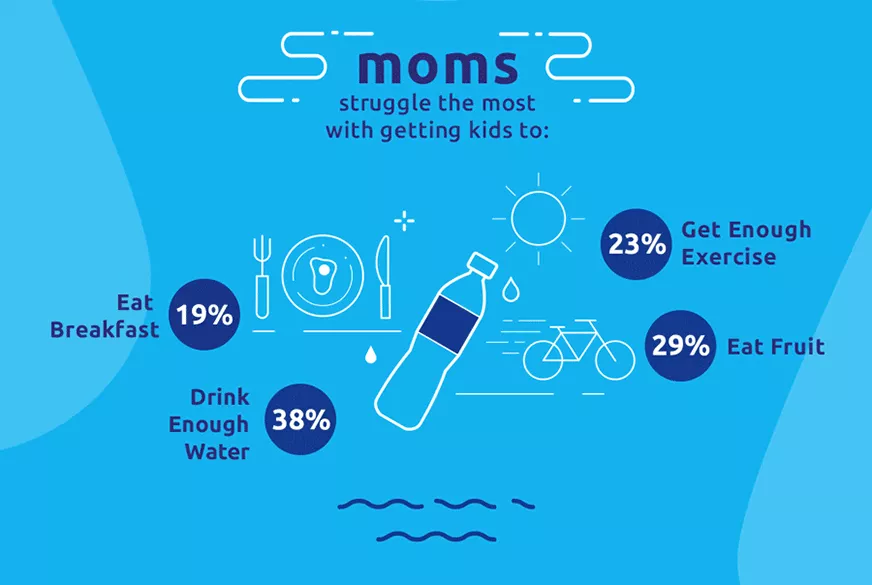Keeping kids hydrated: the ripple effect

One healthy habit leads to another!
See how Moms like you help their kids develop smart hydration habits at a young age.
VIEW INFOGRAPHICGetting kids to drink more water
Even though kids want to grow up fast, they still need your help developing healthy habits. This is especially true when it comes to water for kids. Making sure your kids stay hydrated is important. 52% of Moms say they need to regularly remind their kids to drink water.1
Starting healthy kids water habits
Nestlé® Pure Life® surveyed 1,500 Moms to learn more about their challenges with helping their kids develop a healthy lifestyle and smart hydration habits.
The results showed that Moms believe one good habit can lead to another, and that establishing those healthy habits at an early age can have lifelong benefits. It builds a healthy mindset that causes a ripple effect into other areas of their lives—from nutrition, to exercise and beyond.
So, you might be asking yourself, “How much water should kids drink?” While there’s no absolute formula (variations in metabolism, activity level, and environment make setting firm intake recommendations difficult), general fluid guidelines set by the National Academies of Sciences recommend roughly:
- 5 (8-oz) cups* of fluid a day for children ages 4–8
- 7 (8-oz) cups* of fluid a day for girls ages 9-13
- 8 (8-oz) cups* of fluid a day for boys ages 9-13
Just remember, it’s all about setting healthy hydration habits—the first step toward making a lifetime of smart choices around nutrition, exercise and more! Work with your kids to encourage developing healthy habits early on, and they’ll enjoy lifelong benefits.
- These estimates do not reflect total dietary water intake, as we take in roughly 20% additional fluid from the food we eat. Additionally, warm temperatures and added physical activity can increase daily fluid needs.
---
1Nestlé® Pure Life® conducted an online survey in June 2015 of more than 1,000 moms of children aged 6–12 years old. More than 1,000 kids aged 6-12 years old from the same household were also surveyed.
